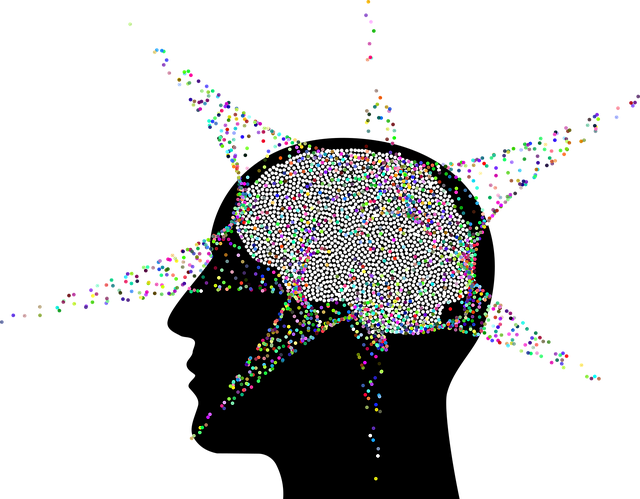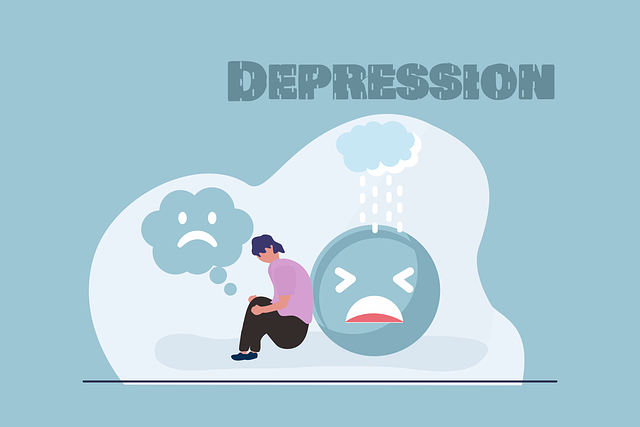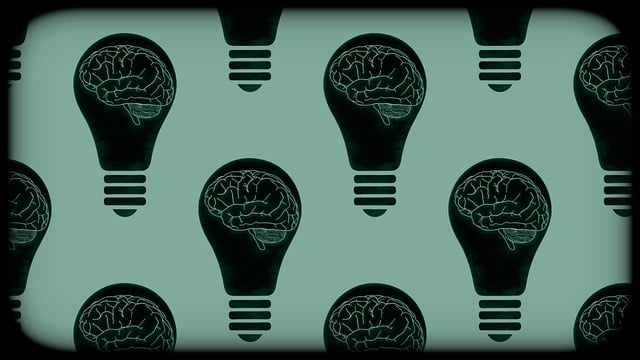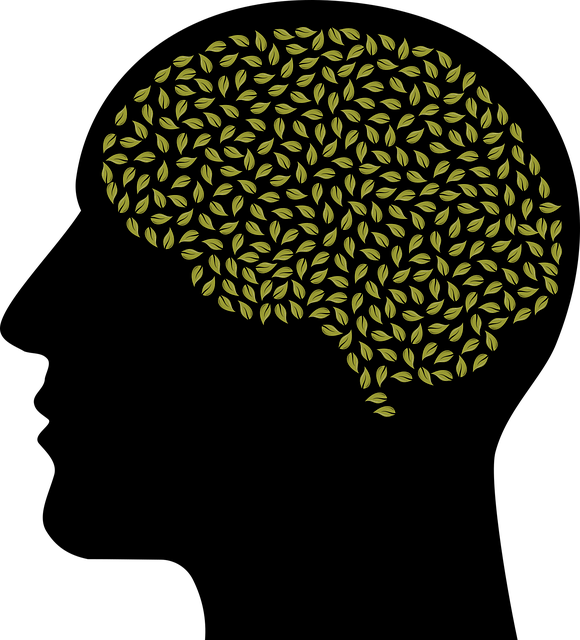Denver ADD-ADHD therapy utilizing the RFM (Risk, Strengths, Needs) framework offers a structured approach to enhancing resilience and coping mechanisms through risk assessment, strengths-based coaching, and anxiety relief. Resilience building exercises tailored to individual needs improve focus, emotional intelligence, and coping strategies, contributing to mental wellness and reducing stigma. Personalized exercise programs combine physical movement with mindfulness techniques for holistic mental health treatment. Tracking progress through pre/post assessments optimizes therapeutic approaches for better long-term outcomes in Denver ADD-ADHD therapy.
In the quest for effective management of Attention Deficit Disorder (ADD) and ADHD, Denver has emerged as a hub for innovative therapies. Among these, Resilience-based exercises (RFM) are gaining prominence. This article explores how RFM, tailored to individual needs, can significantly enhance ADD-ADHD treatment in Denver. We delve into the science behind resilience building, its role in therapy, personalized exercise programs, and practical methods to track progress, offering a comprehensive guide for those seeking advanced Denver ADD-ADHD therapy solutions.
- Understanding RFM: A Key to Resilience in ADD-ADHD Therapy in Denver
- The Role of Resilience Building Exercises in ADD-ADHD Management
- Personalized Exercise Programs for Enhanced Resilience
- Incorporating Physical and Mental Activities in Denver ADD-ADHD Therapy
- Tracking Progress: Measuring the Success of Resilience Training
Understanding RFM: A Key to Resilience in ADD-ADHD Therapy in Denver

In Denver, ADD-ADHD therapy often leverages RFM—a powerful framework that enhances resilience and coping mechanisms. RFM stands for Risk, Strengths, and Needs, a structured approach designed to help individuals understand their unique challenges and build upon their inherent strengths. By identifying risks that contribute to anxiety or other mental health issues, therapists can tailor interventions for more effective Denver ADD-ADHD therapy. This process involves a comprehensive risk assessment for mental health professionals to pinpoint triggers and develop targeted strategies for managing symptoms.
The RFM model goes beyond traditional diagnostic labels by focusing on individual needs and fostering mental wellness coaching programs. It encourages clients to recognize their personal strengths, such as adaptability or creativity, and leverage these in navigating life’s challenges. This proactive approach not only provides anxiety relief but also empowers individuals to take control of their mental health journeys. Through RFM, Denver therapists enable clients to develop resilience, a crucial element for managing ADD-ADHD symptoms and promoting overall well-being.
The Role of Resilience Building Exercises in ADD-ADHD Management

Resilience building exercises play a pivotal role in managing ADD-ADHD symptoms and enhancing overall mental wellness in Denver. These tailored activities equip individuals with strategies to cope with challenges, improve focus, and boost emotional intelligence—all of which are crucial aspects of ADD-ADHD therapy. By engaging in these exercises, folks can navigate daily life’s ups and downs with greater ease, reducing the impact of symptoms on their personal and professional lives.
Beyond mere symptom management, resilience training contributes to Mental Illness Stigma Reduction Efforts by fostering understanding and self-acceptance. It empowers individuals to reframe challenges as opportunities for growth, thereby promoting a positive mindset that fosters emotional resilience. Ultimately, these exercises are game-changers in the pursuit of optimal mental health, encouraging folks to embrace their unique strengths while navigating the complexities of ADD-ADHD in Denver and beyond.
Personalized Exercise Programs for Enhanced Resilience

In the pursuit of building resilience, personalized exercise programs play a pivotal role in Denver ADD-ADHD Therapy’s comprehensive approach to mental wellness. These tailored plans recognize that every individual has unique strengths and challenges. By combining physical activity with mindfulness techniques, therapists create a powerful synergy that enhances self-care practices and fosters overall well-being.
Effective exercises are not one-size-fits-all; they must be aligned with the specific needs and goals of each client. This individualized approach ensures that activities are engaging, motivating, and ultimately contribute to improved coping mechanisms. Through regular practice, individuals can develop mental resilience, making them better equipped to navigate life’s challenges and seize opportunities for personal growth in a supportive environment, as promoted by successful Public Awareness Campaigns Development initiatives.
Incorporating Physical and Mental Activities in Denver ADD-ADHD Therapy

Incorporating Physical and Mental Activities in Denver ADD-ADHD Therapy is a holistic approach to treating attention-deficit/hyperactivity disorder (ADHD) symptoms. Beyond traditional medication and therapy sessions, engaging in structured physical activities and mental exercises can significantly enhance the effectiveness of Denver ADD-ADHD Therapy. This balanced strategy leverages the power of movement to improve focus, reduce impulsivity, and boost overall well-being.
The Community Outreach Program Implementation within Denver’s therapeutic landscape recognizes the importance of these integrated methods. By combining anxiety relief techniques with mind over matter principles, therapists can create a supportive environment that encourages both physical and mental growth. This dual approach not only addresses the symptoms of ADHD but also fosters resilience, empowering individuals to navigate daily challenges with greater ease and confidence.
Tracking Progress: Measuring the Success of Resilience Training

Tracking progress is an integral part of any successful resilience-building program, especially when considering Denver ADD-ADHD Therapy and its effects on patients’ lives. Measuring the success of resilience training allows healthcare providers to understand the impact and make necessary adjustments to the treatment plan. Various methods can be employed to gauge progress, such as pre and post-training assessments, where individuals are evaluated on their coping skills development and mood management abilities. These assessments provide a quantitative and qualitative analysis, helping therapists identify areas of improvement and potential challenges.
Regular monitoring enables therapists to offer personalized guidance and support, ensuring the program aligns with each individual’s unique needs. Moreover, tracking progress can enhance the overall effectiveness of healthcare provider cultural competency training, as it reveals the impact of resilience exercises on patients’ emotional well-being and daily functioning. This data is invaluable for refining therapeutic approaches and improving outcomes in the long term.
Resilience is a powerful tool for managing Attention Deficit Disorder (ADD) and Attention Deficit Hyperactivity Disorder (ADHD), as highlighted through Denver ADD-ADHD therapy’s implementation of RFM and resilience building exercises. By understanding the key principles of RFM, utilizing tailored exercise programs, and incorporating diverse physical and mental activities, individuals with ADD/ADHD can significantly enhance their resilience. Tracking progress ensures that these exercises remain effective, allowing for continuous improvement in managing symptoms and daily functioning. Denver ADD-ADHD therapy stands as a beacon, guiding individuals towards a more resilient future.














